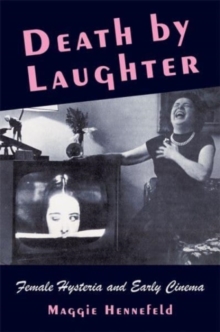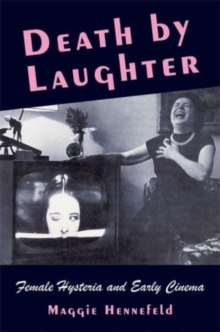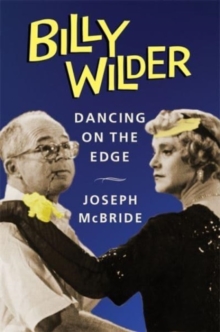
Where Film Meets Philosophy : Godard, Resnais, and Experiments in Cinematic Thinking EPUB
by Hunter Vaughan
Part of the Film and Culture Series series
EPUB
Description
Closely reading the films of Jean-Luc Godard and Alain Resnais, Hunter Vaughan establishes a connection between phenomenology and image-philosophy to analyze the moving image and its challenge to conventional modes of thought.
Striving to establish a clear foundation for the recent field of inquiry called “film-philosophy,†he devises a systematic theory of film’s philosophical function and its deconstruction of classic oppositional concepts, such as subject and object, real and imaginary, and interior and exterior. After merging Maurice Merleau-Ponty’s theory of subject-object relations with Gilles Deleuze’s image-philosophy, Vaughan applies this rich framework to a comparative analysis of Godard and Resnais.
Godard’s work critiques the audio-visual illusion of empirical observation (objectivity), while Resnais’s innovative play with the sound-image generates new, thrilling portrayals of individual experience (subjectivity).
Both radically deconstruct classical film codes, upending conventional notions of subjectivity and, by reorganizing formal elements, reconfigure subject-object relations to alter our understanding of ourselves and the world.
Films discussed include Godard’s Vivre sa vie (1962), Contempt (1963), and his lesser-critiqued 2 or 3 Things I Know About Her (1967); Resnais’s Hiroshima, mon amour (1959), Last year at Marienbad (1961) and his critically overlooked masterpiece, The War is Over (1966).
Situating the formative works of these filmmakers within a broader philosophical context, Vaughan pioneers a phenomenological film semiotics that reconciles two disparate methodologies and joins them to the achievements of two seemingly oppositional artists.
Information
-
Download - Immediately Available
- Format:EPUB
- Pages:264 pages
- Publisher:Columbia University Press
- Publication Date:05/02/2013
- Category:
- ISBN:9780231530828
Other Formats
- Paperback / softback from £23.95
- Hardback from £79.85
Information
-
Download - Immediately Available
- Format:EPUB
- Pages:264 pages
- Publisher:Columbia University Press
- Publication Date:05/02/2013
- Category:
- ISBN:9780231530828










